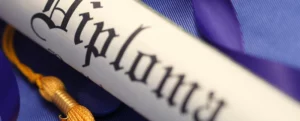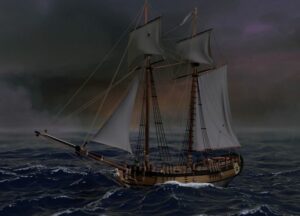Americanism Redux
October 13, 250 years ago today
Golden leaves in the day and chilled air at night. October 13.
My college diploma still feels fresh, barely a year old.
I miss that life that ended last year.
We had classes, professors, weekly assignments, reading and writing. We socialized, attended dinners, danced, made friends for life and friends for the night, drank too much alcohol, drank too little alcohol. We had a life of rules, their observance and violation, their necessity and stupidity. We wondered about paying for tuition, books, and room-and-board.
The three of us discovered that we knew we had a future, something different from so many of the others we knew. We talked ideas, we debated philosophies, we tested points of view. Ancient or new, time-tested or freshly innovative. None of it seemed in vain. All of it pointed toward somewhere.
Our college president would look toward the sky and call for God “to spare useful lives.” He must have spoken those words in front of us a hundred times.
It was thrilling. I miss the way I lived, I miss both of you, I miss the three of us.
So wherever we are right now, gaze at the golden leaves of daylight and wrap up in scarves for the chilled air of night. October 13. 250 years ago.
* * * * * * *
Today, 250 years ago, William Bradford, Philip Freneau, and James Madison were thinking of each other and remembering those days of last year at Princeton. They begin an exchange of letters as they proceed through their first year as college graduates and the latest inspired minds from mentoring by the college’s president, Reverend John Witherspoon, who’d built a library of nearly 3,000 volumes. He’d likely read every book. These writings were tools for the classroom.
The trio of new graduates had steeped themselves in the literary and intellectual works of Rome, Greece, Asia, Western Europe, and Northern Africa. From history to religion, philosophy to mathematics, rhetoric to poetry, morality to economics, they absorbed findings, discoveries, theories, experiences, and assumptions that spanned the planet.
They lived apart now, in separate British colonies, Madison in Virginia, Freneau in New Jersey, Bradford in Pennsylvania. On a windy autumn day the three young adults wrestled with the question of the rest of their lives.
The darkness across the night’s Hunter’s Moon had already crawled over half the surface visible to the three young men.
Could they remember what President Witherspoon would have told them? Of course they could. God spare the useful life.
But that doesn’t stop the chill of the night.
Also
Under the same retreating Hunter’s Moon, the cold waters of the Atlantic Ocean carry a small wooden vessel east from Boston’s bay. The vessel seeks the great currents that move within ocean waters. Scarcely fifty feet long, the HMS Sultana creaks in its rigging and hull and rolls in the black waves.
Two men stand together on deck beneath the half-lit moon.
They are Ship Captain John Inglis born in Pennsylvania, and Ship Master David Bruce, born in England. The ship’s leadership pair is one-part colonist, one-part Englishman. As an entity the ship is full-sum British, a naval enforcer of imperial trade policy and regulations. After serving in New England’s coastal waters since 1768, Sultana and its crew make for home to Old England today, 250 years ago.
Inglis and Bruce’s service aboard Sultana has been difficult. They’ve clashed with colonial merchants and seaman keen on violating trade restrictions. Moments of violence and intimidation have flashed up, with the two men both victims and perpetrators in various incidents. They’ve sailed on the sharp edge, the blood edge, of changes in imperial policy, going from an era of no enforcement to an era of tough enforcement. When decision-makers wearing fancy suits sit in London and scratch words on policy, it’s people like Inglis and Bruce wearing uniforms smelling of salt water who deal with the reality of consequences.
The Sultana’s hour glass marks the passage of life on today, 250 years ago. Sand gathers in the glass’s bottom half as colonial problems recede into the past. The grains yet to fall show more ocean ahead, a future of returning to England and British imperial power. And between them, in the narrow neck of the time piece, each grain squeezes through, one by one, the happening of the present on the Atlantic’s vast and dark surface.
For You Now
The future has many forms. Yours. Mine. Ours. Theirs. Within each of them is a particular state of being. For the three new college graduates at Princeton, the future was where the time of their lives would proceed, especially in constructing the life their college president defined so cryptically—a life of use that would forestall destruction. For the two naval leaders on the small vessel, the future was on a horizon of space, at the end of which was a physical place meaningful to them.
Would the directions continue to diverge? Would some shift, some change, reset their courses and redraw the angles?
On this day, 250 years ago, the questions of founding or not founding were concealed in the darkness.
Suggestion
Mark the present as a future from five years ago. Did the direction continue to diverge? Did it shift into convergence with something else? Look for the clue of a founding in your answer. Find a light near the water.










